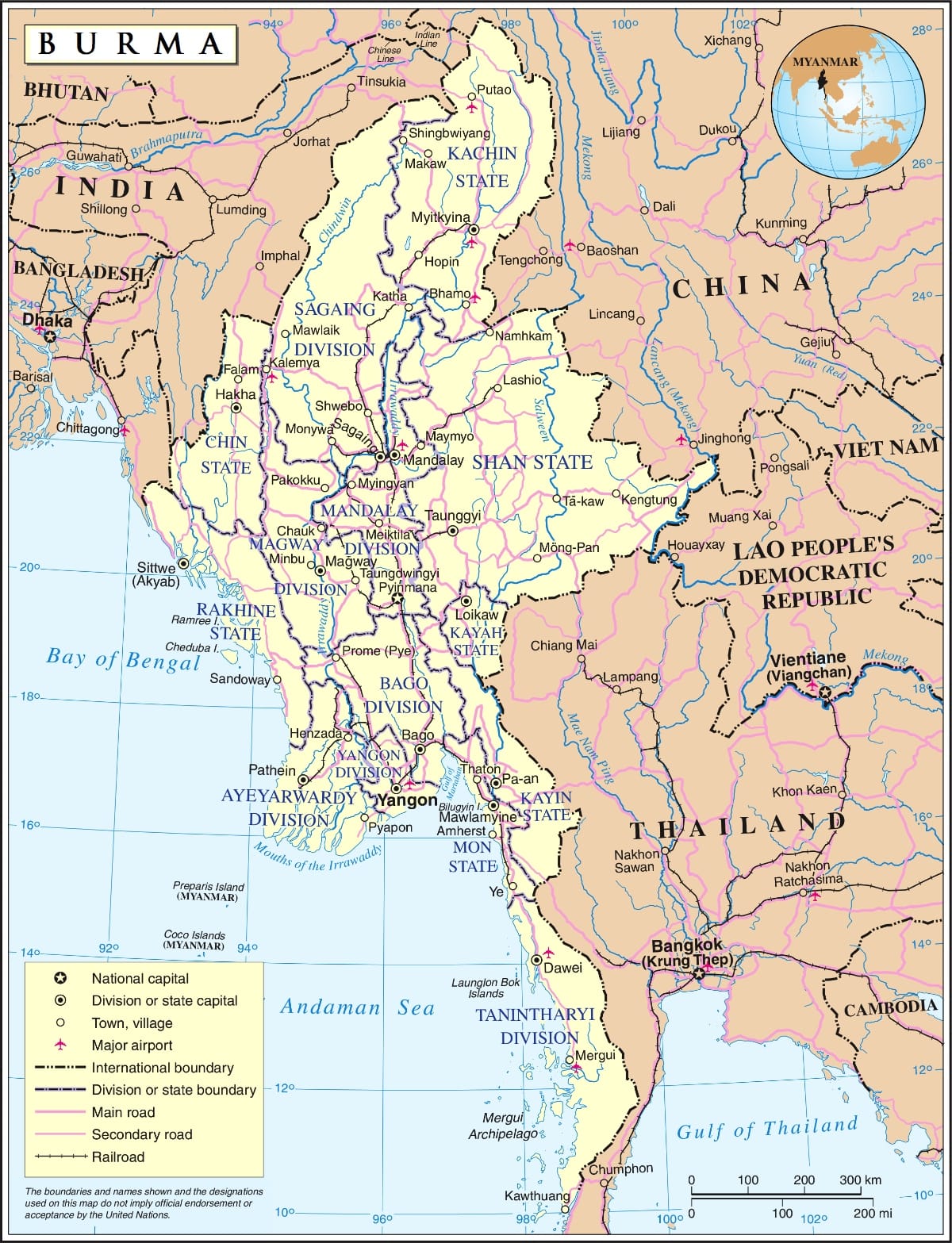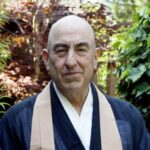Hozan Alan Senauke of the Clear View Project concisely explains the conflict happening in Burma, and what you can do about it.
Aside from the rescue of a foolish American, nothing has changed after Senator Jim Webb’s mission to free John Yettaw from Burma: Aung San Suu Kyi is still in custody; 2100 political prisoners — including 250 monks and nuns — are still in Burma’s deadly prisons; and the Burmese junta’s assault on ethnic areas has killed and displaced tens of thousands.
In a long-predicted verdict, Daw Aung San Suu Kyi — Burma’s only elected leader — was sentenced to 18 months of house arrest by a court at Rangoon’s Insein Prison on August 11. She was convicted of breaching the terms of house arrest when American John Yettaw swam to her lakeside compound to warn her of impending danger. After a brief conversation with Daw Suu, Yettaw, complaining of weakness and pain, was allowed to stay overnight. Yettaw received seven years at hard labor. Aung San Suu Kyi’s resident aides Khin Khin Win and Win Ma Ma also received 18-month sentences. This came as a “compassionate” intervention by Senior General Than Shwe, after the court initially sentenced Daw Suu to three years in prison with hard labor.
On August 15, U.S. Senator Jim Webb of Virginia visited Burma, met separately with Than Shwe and Aung San Suu Kyi, and secured the release of John Yettaw. Yettaw is back in the U.S., while Aung San Suu Kyi continues under house arrest — where she has been for 14 of the last 19 years — convicted of compassion for her ill and misguided intruder.
The legality of her sentence and the premise of Aung San Suu Kyi’s trial is questioned by governments and activists around the world. Her isolation is a transparent attempt to remove Daw Suu from the bogus election process scheduled by Burma’s SPDC junta for 2010.
Last winter Secretary of State Hillary Clinton announced she was reviewing Burma policy. “Clearly, the path we have taken in imposing sanctions hasn’t influenced the Burmese junta.” But she added that Burma’s neighbors’ policy of “reaching out and trying to engage them has not influenced them, either.” Senator Webb’s mission is seen as a boon both for the generals and for advocates of trade and engagement. Yet aside from the rescue of a foolish American, nothing has changed. Aung San Suu Kyi is still in custody; 2100 political prisoners — including 250 monks and nuns — are still in Burma’s deadly prisons; and the army’s unusual rainy-season assault on ethnic areas has killed and displaced tens of thousands while the world was watching the drama in Rangoon and wringing its hands.
In her recent trip to Asia Secretary Clinton decried human rights abuses in Burma, including widespread and documented accounts of rape by the Burmese military. She also raised serious concerns about conventional arms and nuclear trade between North Korea and Burma.
Yet the U.S. government continues to speak out of both sides of its mouth: protesting the conviction of Suu Kyi and the military’s policy of ethnic cleansing while holding out promises of engagement and a lessening of sanctions. Meanwhile sanction loopholes allow Chevron to pay cash to the junta in exchange for a 28% stake in the Yadana pipeline, carrying natural gas from Burma’s Andaman Sea overland to Thailand.
Last week, speaking about sanctions through her lawyer Nyan Win, Aung San Suu Kyi was clear that Burma’s junta needs “…to first interact ‘inside the country.’ She said only when that happens ‘will Burma benefit from relations with the international community.’”
This kind of interaction is exactly what the Generals fear. They are afraid of Aung San Suu Kyi. That’s why they try to control her. The Generals are afraid of the monks, and that is why they banned the annual Metta Sutta ceremony at Myat Saw Nyi Naung Pagoda on August 5. Burmese security officers have again appeared at Rangoon’s leading temples and monasteries. Mizzima News reported on August 20:
Firm in its belief that Buddhist monks are gearing up for another round of protests, the Burmese military junta has put main Buddhist monasteries and temples under close surveillance.
Aung San Suu Kyi writes, “It is not power that corrupts but fear.”
Visiting Burma since the 2007 Saffron Revolution, I have seen this fear on people’s faces. But again and again I have also felt their determination to be free. I hope we can support the monks and all of Burma’s peoples longing for freedom. Stay informed and help as you can.
If you would like to stay informed about Burma’s democracy movement and actions in the U.S., please check regular updates at our website: www.clearviewproject.org. If you would like to help out, full information on Clear View Project’s unique program, “Adopt a Monk from the Saffron Revolution,” can be found at the top of our website. For daily news on Burma, see: www.irrawaddy.com.

